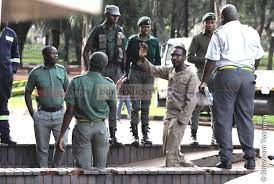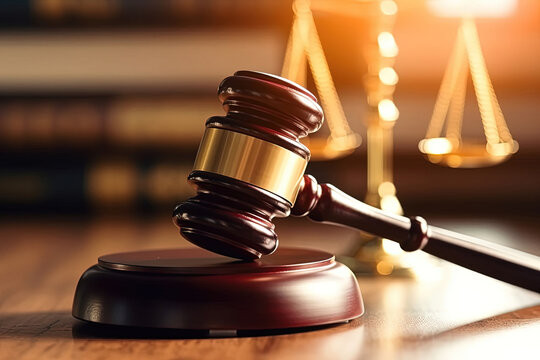
BLESSED Mhlanga, a senior journalist at Alpha Media Holdings (AMH) and the head of news at AMH’s HStv, is in prison for doing an interview with an outspoken Zanu PF central committee member and war veteran, Blessing Runesu “Bombshell” Geza.
Arresting journalists for doing their work is not new in the world.
In Israel, foreign media houses have been kicked out and some journalists killed in the line of duty.
The United States spent millions of dollars trying to hunt down Julian Assange — the WikiLeaks founder.
However, it has to be called out no matter in which country it has happened.
Journalism — warts and all — is a vital component of democracy.
Beyond informing people, it also holds to account those who wield political power or public office.
Assange is the man who exposed the American excesses at Guantanamo Bay, a prison on the Cuban Island, where alleged Islamic terrorists post the 9/11 attacks were held without trial.
- Masunda lands global sugar industry position
- In Conversation with Trevor: Chisamba: Let’s be proud of ourselves
- In Conversation with Trevor : How car crash changed my life
- In Conversation With Trevor: ‘We lost our humanity’
Keep Reading
He also exposed the abuse of power by the US military in Iraq.
Naturally, the US government got angry and wanted Assange to be imprisoned for more than 100 years for publishing State secrets or exposing US military agents to danger.
It is now common knowledge that Assange had to run away from Sweden and settle in the United Kingdom, where he thought it was going to be difficult to extradite him to the US for trial.
Assange breached his bail conditions when he sought asylum in the Ecuadorian embassy.
After nearly a decade, Assange became a free man after a multi-national political settlement that saw him going to settle in Australia.
The world may slowly be forgetting Edward Snowden, an intelligence contract worker who released information about the Prism surveillance project.
The US government had access to all information and chats on social media.
In fact, it has a back door entrance to the servers of all the big social media companies and mobile telecoms.
Snowden is now in Russia where he was granted asylum.
The irony cannot escape being observed that Snowden had to flee a “free country” and settle in “despotic” Russia.
Locally, over the years, the police have been at it too — arresting journalists for writing unsavoury stories.
Some journalists have even been tortured by security agents.
Let’s do a quick rundown of the most prominent cases.
In 2016, reporter Xolisani Ncube and Deputy Editor Nqaba Matshazi of the daily NewsDay were arrested for publishing a story that alleged that State security agents had received bonuses ahead of all the other civil servants.
The duo spent a night in police custody before they were granted bail.
In 1999, The Standard editor Mark Chavhunduka and journalist Ray Choto were picked up for publishing an article that alleged that there had been an aborted coup in Zimbabwe.
They were held in communicado for three weeks by the military before they were dumped at a police station with visible signs of torture.
It should be remembered that the journalism fraternity held a number of vigils and demonstrations for their release.
Lawyers applied for harbeas corpus, but the orders were ignored.
In the mid-1990s, Financial Gazette publisher Elias Rusike, his editor Trevor Ncube and his deputy Simba Makunike were arrested and convicted of criminal defamation for publishing a story that alleged Justice Paddington Garwe had officiated at a secret wedding of President Robert Mugabe to Grace Marufu.
The duo had spent a weekend as guests of the State at a police station before they appeared in court.
The 2013 Constitution has made a great change to this in that an accused has to be charged and brought before the courts within 48 hours of their arrest.
It is important to note that in all the above cited cases — both local and foreign — they were of immense public interest, but embarrassing to politicians.
Let’s get back to the Mhlanga case.
President Emmerson Mnangagwa and his supporters had assumed they had their ducks in a row after the 2024 Zanu PF conference that resolved his term should be extended to 2030.
It seemed there was no opposition to the proposition, but alas something was brewing.
A decorated war veteran, former intelligence officer and a sitting member of Zanu PF central committee, Geza, like his nom de guerre — Bombshell — disturbed the plan by giving an exclusive interview to Mhlanga.
In the interview, Geza said they were opposed to the 2030 position and went further to call for Mnangagwa to step down.
It is on record that Geza is a wanted man by the police.
He has not handed himself over to the police.
His whereabouts are still unknown.
It is conceivable that the police, by arresting Mhlanga, would have killed two birds with one stone.
The arrest and possible denial of bail would deter other journalists from interviewing Geza and secondly, the fugitive Geza will have to establish a new channel for his communication to Zimbabweans.
It is also interesting to note that presidential spokesman George Charamba posted on X (formerly Twitter) insinuating that Mhlanga had good relations with Mnangagwa and even once opened doors for Ncube to meet the President.
Is it that Mnangagwa felt betrayed by Mhlanga, his supposed friend, who gave an opportunity for Geza to openly attack him?
Could this be the reason why giving Mhlanga bail has taken this long? (Not to imply that the Executive somehow interferes with court processes, no!)
Or even that, giving space to those opposed to the ED2030 agenda is not permissible?
Whatever the case may be, it is apparent Zimbabwe’s image is taking a dent.
Some international media are making a case of the Mnangagwa administration as the extension of Mugabe’s era of denying press freedom.
This case would rumble for a long time, so long the 2030 agenda is still on the table.
The media will have to be careful how it reports on the issue and gives voices to those opposed to it.
Probably, like the case of Assange, a political solution to media freedom should be found.










